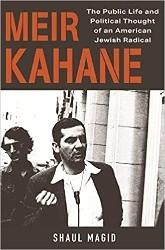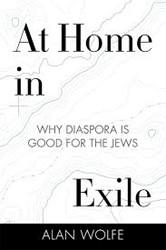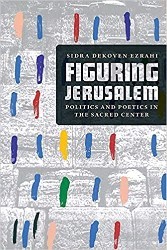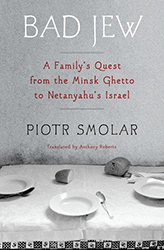Written largely before the recent events in Israel, Shaul Magid’s essays raise some probing questions about the nature of Zionism and its future. Magid, a professor of Jewish Studies at Dartmouth, aligns himself with a nearly vanished strain of Jewish thought that considers the political goal of Zionism — to establish a Jewish and democratic state — as an impossible contradiction. A nation-state grounded in ethnoreligion, Magid argues, was bound to become less democratic. He explains that this has been the case from the beginning of Israel’s existence, but it has been exacerbated by the fifty-year stalemate over the status of the Palestinian state and the dominance of right-wing parties in recent Israeli governments. In Magid’s view, the hope for a two-state solution has receded almost to a vanishing point. This has left those who identify as liberal Zionists as lonely voices in the crowd. Can there even be any hope for a liberal solution?
Magid explores this question through a number of lenses. The first is historical: he recounts some of the early debates within the Zionist movement. In these sections, he recalls the voices of such luminaries as Martin Buber, Franz Rosenzweig, and Hannah Arendt. Their argument for a Jewish homeland within Palestine, but not necessarily apart from the Arab population, lost the historical battle against the proponents of statehood (David Ben-Gurion and Chaim Weizmann). In the years following Israel’s founding, the “liberal Zionism” of Ben-Gurion and his followers gave way to the rise of a maximalist strain of Zionism that stemmed from Zvi Jabotinsky and was compounded by the zealotry of settlers.
Another of Magid’s lenses is personal. He devotes a lengthy section to what he describes as his “tragic love affair with Zionism.” It’s not clear why he deems his trajectory “tragic,” but he provides a moving account of how he — the son of assimilated, non-religious, and non-Zionist Jews — gravitated toward ultra-Orthodox (Haredi) Judaism, dabbled in the settler movement, and ended up with his current stance, which he calls “counter-Zionist.” He’s not anti-Israel, he asserts several times, but seeks a form of Israel’s existence that would come close to fulfilling its founding ideals as a place for all people.
A third lens is philosophical/religious and explores the various debates over “Who Owns the Holy Land.” The maximalist Zionist position, which alludes to God’s covenant with the Jews, holds that “We own Eretz Israel and we can dispose of it as we will.” In Magid’s view, the true answer is that God owns it, and we occupy it on His sufferance.
A final major theme appears in the title itself. One of Zionism’s chief claims, as Magid puts it, is to supersede exile and the diaspora. Many Zionists believe that, because of the founding of the State of Israel, the diaspora has no raison d’être, and Jews remaining outside Israel are somehow not fully Jews. Magid rejects this line of thinking. In his view, it makes light of the generations of traditions that have developed throughout the diaspora. For many secular Israelis and non-Israeli Jews in the diaspora, Israel is all there is to define what it is to be a Jew. However, Magid aligns himself with those who see value in a permanent state of exile, one that can spark continued creativity.
In the individual essays, Magid writes passionately and persuasively, raising more questions than answers. As a whole, the collection doesn’t always cohere, and several chapters dilute some of the focus. And, given the major change in circumstance resulting from the events of October 7 and following, one wonders whether the kind of counter-Zionism Magid wishes to see — in effect one state for all Israelis and Palestinians — has any more viability than a two-state solution. Nonetheless, this is a volume that will stir reflection and debate.





